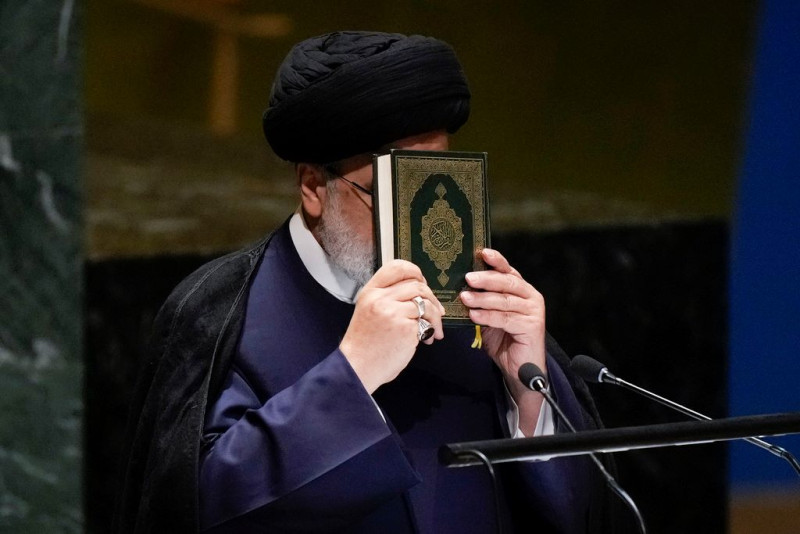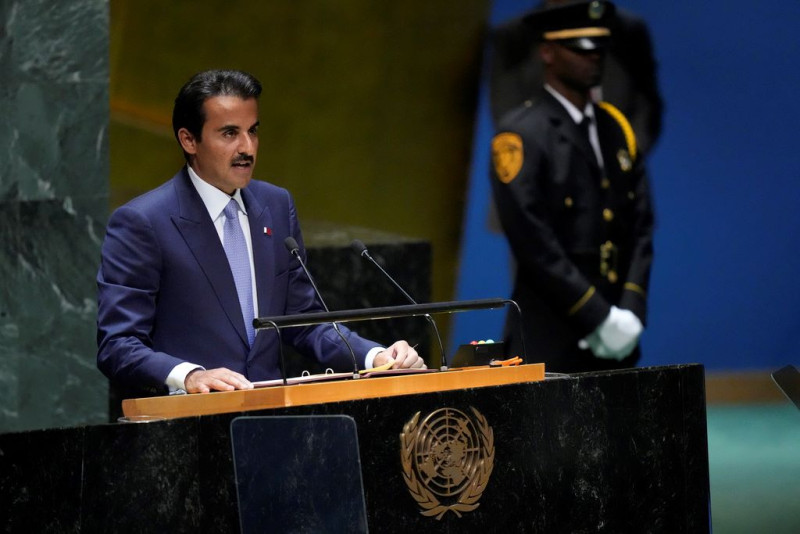Turkey, Iran and Qatar mainly criticized Sweden, citing Islamophobia and disrespect
The leaders of Muslim countries – Turkey, Iran and Qatar – criticized European countries, especially Sweden, on Tuesday from the floor of the UN General Assembly, for the incidents of burning copies of the Koran.
The Turkish president Recep Tayyip Erdogan he was the first to denounce the “unacceptable” attacks against Islam in Europe.
In his speech to the UN General Assembly, Erdogan estimated that “racism, xenophobia and Islamophobia” in European countries, which he did not name, have reached “unbearable” levels.
Besides, he accused “populist politicians in many countries” of “still playing with fire”, while he estimated that “the despicable attacks in Europe against the Koran (…) tarnish its future”.
In an equally harsh speech against the US and the West in general, the conservative Iranian President Ebrahim Raisi he assured that “the fire of impiety will not quench the sacred truth.”
Raisi held up a copy of the Koran several times, which he kissed, before placing it on the lectern.
“The Islamophobia and cultural apartheid that we observe in some Western countries – starting from the desecration of the holy books of the Koran and reaching the banning of the hijab in schools – and many other sad discriminations are incompatible with human dignity,” the Iranian said. president, without mentioning any country by name.
THE Emir of Qatar Tamim bin Hamad al Thani he declared that “the Qur’an is too holy for a fool to desecrate.”
An Iraqi refugee in Sweden, Salwan Momika, sparked international outrage in June by burning and trampling a copy of the Koran in front of Stockholm’s largest mosque on the first day of Eid al-Adha.
Iraq last week asked Sweden to extradite Momika. Stockholm condemned the desecration of the Koran but underlined that the country prioritizes freedom of speech and assembly.
The Danish government introduced a bill at the end of August that would ban the burning of Islam’s holy book.
For his part, Erdogan has been putting pressure on Sweden for months to take measures against these acts, in a context of great bilateral tension: at the end of July, after 14 months, Ankara lifted its veto on Stockholm’s accession to NATO . Turkey accuses Sweden of harboring Kurdish rebels.
Source :Skai
With a wealth of experience honed over 4+ years in journalism, I bring a seasoned voice to the world of news. Currently, I work as a freelance writer and editor, always seeking new opportunities to tell compelling stories in the field of world news.












